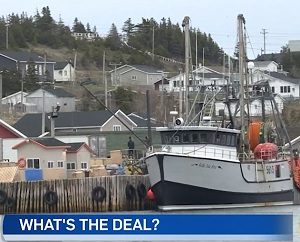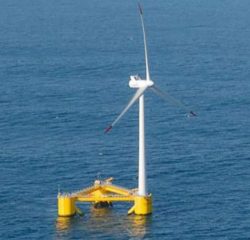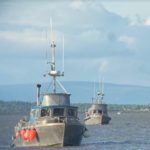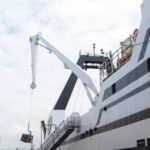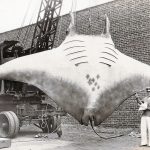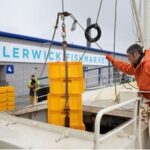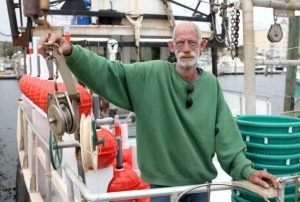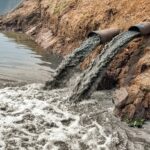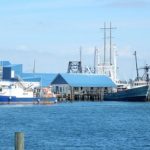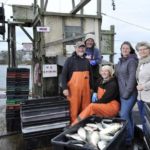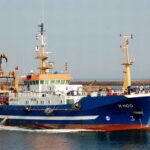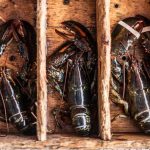Daily Archives: June 1, 2019
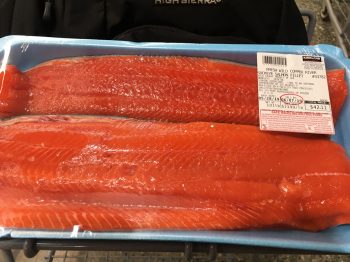
Copper River salmon harvest flows into marketplace
Since the Copper River salmon commercial fishery opened on May 16, harvesters have brought in upwards of 180,000 fish. Preliminary data compiled by the Alaska Department of Fish and Game’s office in Cordova as of Tuesday, May 28, put the count at upwards of 168,336 red, 7,041 king and 4,710 chum salmon brought in during a total of 1,764 deliveries by the drift gillnet fleet.,,, Pike Place Fish Market in Seattle had whole Copper River kings for $39.95 a pound, Copper River king fillets for $49.99 a pound, Copper River sockeyes at $99.95 per fish and Copper River sockeye fillets for $29.99 a pound. >click to read<17:30
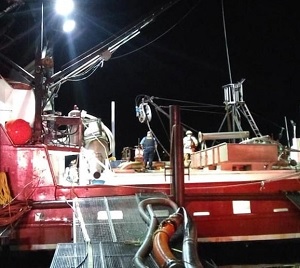
Boat Fire In Point Pleasant Beach (UPDATED)
Firefighters responded to a fire in a commercial fishing boat docked in Point Pleasant Beach on Friday, officials said. The fire happened just after 2 a.m. when Point Pleasant Beach Fire Department Stations 42 and 43, along with police and the Point Pleasant Beach First Aid Squad, were dispatched to a fire in a commercial fishing boat that is docked on Channel Drive, officials said. The Ugly Duck, which is considered a Bunker Boat, >click to read<16:24
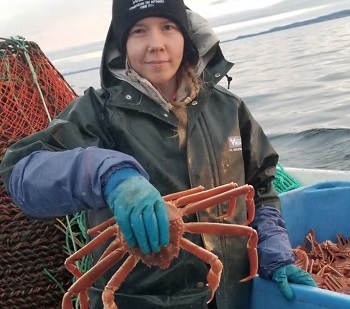
‘I’ll teach her’: Mom proud to show daughter the ropes of fishing
As a teenager, Jasmine Paul wanted nothing more than to, as she says, “get clear” of the outport fishing life in Newfoundland and head to Toronto. She got as far as St. John’s. In recent years, however, visits back home to Come By Chance made her feel nostalgic about her rural roots. “It made me realize what I was missing,” Paul said. At 31, Paul has come full circle: she’s decided that the fishing life she once loathed could be her future. This season, for the first time, Paul is learning the ropes as a harvester under the guidance of her parents. >click to read< 15:06
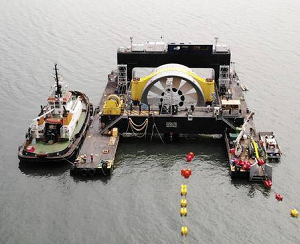
EDITORIAL: Tidal turbines’ troubled waters
For decades, politicians and provincial boosters have been touting the potential of Nova Scotia’s tidal power. We’re steeped in tide lore around here, from the Shubenacadie River’s tidal bore to those time-lapse videos of dockside fishing boats being floated off the bottom by the incoming tide. There’s enormous power in the Bay of Fundy, if only some clever engineer could channel it somehow into our energy grid. It’s clean, it’s renewable and it’s free. Well, it’s proving more complicated, expensive and difficult to harness that energy than even the most skeptical observer could have imagined. And an accident involving a fishing boat is just more bad news for efforts to use the tides to wean ourselves from coal-burning electricity generation. >click to read<13:15
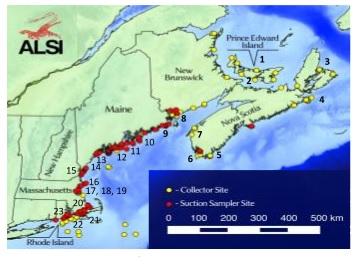
Coast to coast, companies team up to fund UMaine lobster research
A $75,000 gift from two seafood companies will fund a fourth field season for a University of Maine deepwater lobster settlement monitoring program. The deepwater research is an extension of the American Lobster Settlement Index, which was initiated in 1989 by Rick Wahle, a research professor in the School of Marine Sciences and director of the Lobster Institute. The index includes collaborators and monitoring sites from Rhode Island to Newfoundland.,,, The 2019 field season will be funded by a $50,000 gift from Ready Seafood Company, and a $25,000 gift from Santa Monica Seafood Co., a seafood distributor in California. (Thank You!) >click to read<11:42

Will there be ENRON like brown-outs? Mass. to double offshore wind procurements
The Baker administration is pushing ahead with plans to double the procurement of offshore wind power over the next several years, a move that will increase wind’s share of the state’s energy portfolio to 30 percent while locking Massachusetts into long-term contracts for nearly two thirds of its electricity. >click to read< (note), In the meantime, Pilgrim was quietly closed yesterday while Cape Cod Commission urged to focus on emissions reduction10:45
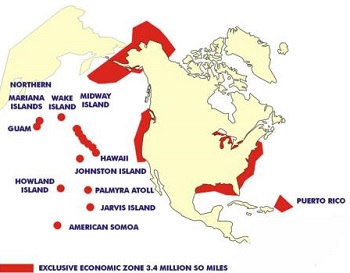
Fisheries Off West Coast States; Comprehensive Ecosystem-Based Amendment 1
Comprehensive Ecosystem-Based Amendment 1 (CEBA 1) amends the Pacific Fishery Management Council’s (Council’s) four fishery management plans (FMPs): the Coastal Pelagic Species (CPS) FMP, the Pacific Coast Groundfish FMP, the FMP for U.S. West Coast Highly Migratory Species (HMS), and the Pacific Coast Salmon FMP. CEBA 1 brings new ecosystem component species (collectively, “Shared EC Species”) into each of those FMPs and prohibits directed commercial fisheries for Shared EC Species within the U.S. West Coast Exclusive Economic Zone (EEZ). The final rule defines and prohibits directed commercial fishing for Shared EC Species, and prohibits, with limited exceptions, at-sea processing of Shared EC Species. >click to read<10:08
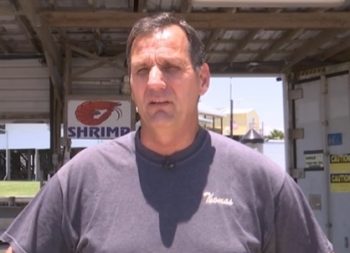
Louisiana – Flooding, pollution devastating state’s fishing industry
Even with the delayed opening of the Morganza Spillway, fishermen in Acadiana say they’ve been feeling the affects of flooding for months. Thursday, Governor John Bel Edwards said fishermen around the state are experiencing 90 percent loss. In Cypremont Point, commercial fisherman Thomas Olander says on a normal Friday during shrimp season the bay is filled with shrimp boats and shrimp for local shoppers.,, “With all of the runoff with fertilizer and all the towns that are being flooded now with fresh water running through the towns It’s just polluted and it’s causing one of the largest dead zones probably ever recorded,” he explained. >Video, click to read<09:15






